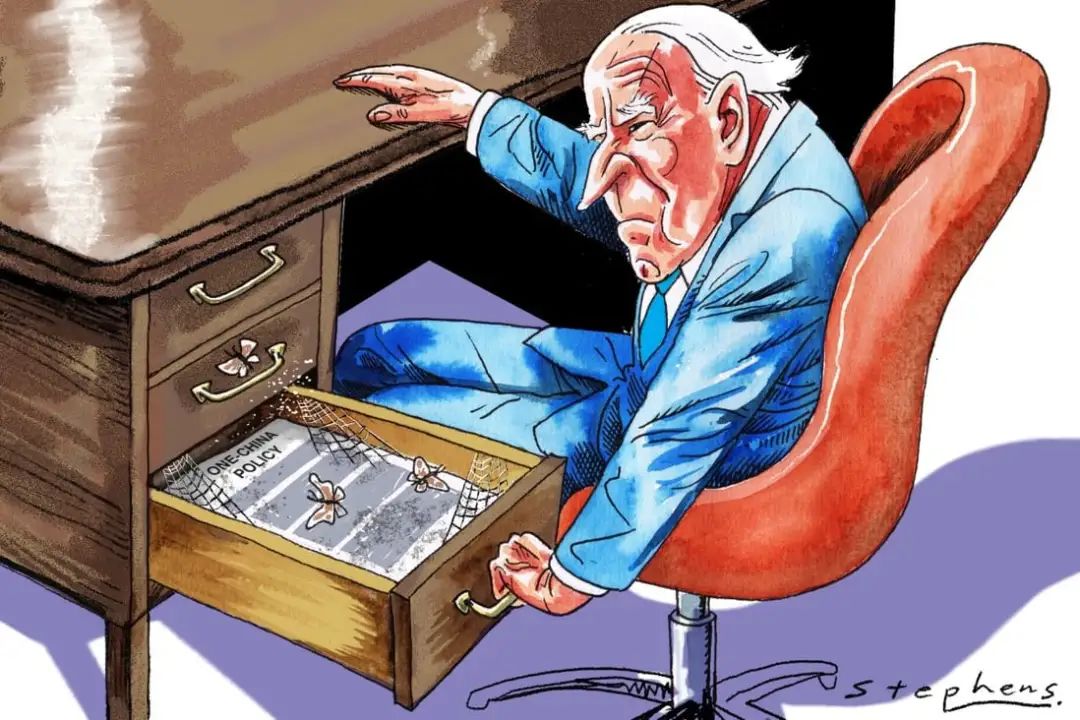Zhou Bo: Senior fellow of the Centre for International Security and Strategy at Tsinghua University and a China Forum expert.
With China-US relations in free fall, the bare minimum needed for both powers to coexist is not to increase trust, but to avert a conflict in the Taiwan Strait, something that looks increasingly likely.
Since the Trump administration, a vicious circle of action and reaction has spiralled. It culminated in August when US House Speaker Nancy Pelosi visited Taiwan despite China’s warnings. The response of the People’s Liberation Army was an unprecedented military exercise in six areas around Taiwan that effectively sealed off the island for three days.
How to avoid a conflict that neither side wants? Simple: let China believe that a peaceful reunification with Taiwan is still possible. This will mean the Taiwanese authorities coming back to the one-China principle and the US reinvigorating the one-China policy it claims to have maintained.

This won’t be easy. In 1992, the mainland and Taiwan’s ruling Kuomintang agreed that there was only one China, although they differed in their definitions. But the taiwanese authorities led by Tsai Ing-wen asserted that Taiwan had never accepted the 1992 consensus. Beijing’s worry is that, should the stalemate continue, a Taiwan led by separatist authorities could remain de facto independent for good.
The US insists it respects the one-China principle but sells arms to Taiwan worth tens of billions of dollars. President Joe Biden has more than once said the US would defend Taiwan in an attack from the mainland.
Most recently, the bipartisan Taiwan Policy Act proposes to recognise Taiwan as a “major non-Nato ally”. Amid growing tensions, Beijing has to suspect that Washington is developing what Henry Kissinger called “something of a ‘two-China’ solution”.
Washington has to search its soul to answer two questions. First, is Taiwan really America’s asset if it risks dragging the US into a war with a peer competitor? And, if the US doesn’t wish to confront Russia in Ukraine for fear of a third world war, why would it risk confronting China? Repeated American war-gaming has shown that the US might lose in a direct confrontation with China’s military in the Taiwan Strait.
Or is it because China has a much smaller nuclear arsenal than Russia’s and has a “no first use” nuclear policy? Nukes aside, China’s military strength should be no less formidable than Russia’s.
The PLA is the largest armed force in the world. Its military budget is more than triple Russia’s. It even has more naval ships than the US. If Beijing concludes that it is Russia’s next-to-none nuclear stockpile that is deterring the US from intervention, then expanding China’s own nuclear stockpile needs only a change of mind.
Beijing and Washington have a few tactical agreements on avoiding accidents at sea or in the air. The problem is, a conflict in the Taiwan Strait can hardly be accidental. If Beijing believes any suggestions on “guardrails” are simply American guile to handicap China’s reunification efforts, these guardrails will not be established.
Much has been said about how the US could turn Taiwan into a “porcupine” by enhancing its self-defence capabilities. But a few more sea mines, armed drones and anti-ship missiles are hardly game-changing.
Today’s PLA is much more confident and capable of guarding China’s “red lines” than at its last missile exercises in the strait in 1995-1996. A Taiwan Strait that is only 180 kms wide can only feel narrower for the PLA in the future.
Beijing still has strategic patience and that is a chance for Washington. Quite a few Western capitals suspect the war in Ukraine will encourage Beijing to take over Taiwan soon. There is no indication of that.
The best example of Beijing’s patience is the military budget announced after the war in Ukraine began. It remains below 2 per cent of gross domestic product, a level it has maintained for decades. China has never announced a timetable for reunification. After all, what is the use of an island that is shattered?
It is in America’s interests to invigorate rather than hollow out the one-China policy. Given its extensive connection with both sides, it could have a unique role to play as an honest broker. As the first step, Washington should encourage the Taiwanese authorities to accept the one-China consensus.
The one-China pledge made by then-president Ma Ying-jeou gave Taiwan tremendous benefits, including a tacit agreement from the mainland not to shake up Taiwan’s relationship with a handful of countries that diplomatically recognise Taiwan. The sooner Taiwan has a conversation with the mainland, the more it stands to gain. Only in this way can Beijing believe there is still peace to maintain in the strait.
Second, the US needs to exercise more self-discipline. Even if Biden and the Pentagon didn’t like Pelosi’s visit, it still happened. Beijing is not so naive as to believe that Biden couldn’t make a phone call to stop the trip.
Visits to Taiwan by American officials, which are likely to increase, are merely symbolic. But they will invite a steady and substantive Chinese response. Taiwan will feel the ever-harder pinch even as the prospect of a China-US conflict looms larger.
One lesson from the Cold War is that even enemies can find ways to avoid a military conflict. China and the US are not enemies yet. In a cold war where both face mutually assured destruction, the best thing that two competitors can achieve is mutually assured coexistence. War doesn’t have to be inevitable, but prevention requires earnest effort.
(This article was first published on South China Morning Post on Sep. 26, 2022.)
